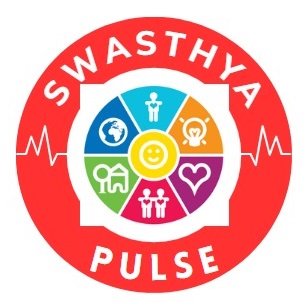An increasing number of women in their 20s and 30s are grappling with thyroid issues—chronic fatigue, brain fog, mood swings, and weight fluctuations. While thyroid conditions are not new, experts are pointing to an often-overlooked trigger that’s becoming more prevalent than ever: chronic stress.
According to the International Journal of Medical and Health Research, over 42 million Indians are affected by thyroid disorders. While genetics, nutrition, and environmental toxins play a role, research is now showing that emotional burnout and sustained stress are major culprits—especially in young women navigating modern life.
Stress: The Silent Hormone Disruptor
This isn’t just about occasional anxiety or work pressure. The real threat is persistent low-grade stress—the kind that stems from juggling careers, caregiving, social media fatigue, and the endless pressure to “do it all.” Over time, this stress interferes with the body’s delicate hormonal balance, with the thyroid often being the first to falter.
“The thyroid works in coordination with the brain and adrenal glands through the HPA axis. When stress becomes chronic, it disrupts this communication and suppresses thyroid function,” explains Dr. Govindarajan, Chief Innovation Officer, Kapiva.
A 2024 study from the Vijayanagar Institute of Medical Sciences found a clear correlation between higher perceived stress levels and elevated TSH (thyroid-stimulating hormone) among healthy women aged 20–49—signaling early-stage thyroid dysfunction triggered by stress.
What Ayurveda Brings to the Table
Conventional medicine remains essential in treating thyroid disease, but Ayurveda offers supportive strategies—especially around stress and hormonal balance.
✽ Ashwagandha
One of the most researched adaptogens, Ashwagandha supports adrenal health and regulates stress hormones. A 2023 NIH-supported study found improvements in T3 and T4 levels in people with subclinical hypothyroidism who used Ashwagandha root extract.
✽ Shatavari & Brahmi
Known for nourishing the nervous system, these herbs help improve emotional balance and hormonal resilience—especially during high-stress periods.
Together, these herbs don’t replace medication but provide a holistic layer of support, helping your body regulate itself from the inside out.
Small Lifestyle Shifts for Thyroid Resilience
Rebalancing doesn’t require an overhaul. Start small:
✅ Prioritize deep rest – Aim for 7–9 hours of quality sleep.
✅ Unplug regularly – Limit screen time, especially before bed.
✅ Eat for hormone health – Include foods rich in iodine, selenium, and zinc.
✅ Try Ayurvedic rituals – Simple practices like pranayama, yoga, and herbal teas can calm the nervous system.
✅ Use adaptogens wisely – Add Ashwagandha, Brahmi, or Shatavari to your routine (under guidance).
Always consult a healthcare provider before starting herbal supplements, especially if you’re on thyroid medication or managing other conditions.
Time to Listen to the Early Signals
Thyroid dysfunction often begins with whispers: low energy, forgetfulness, disrupted sleep, or subtle mood changes. These early signs are your body’s request to slow down and recalibrate.
In a world that constantly demands more, well-being lies in doing less, but with intention. Ayurveda offers not just symptom relief, but a pathway to inner equilibrium—through rest, rhythm, and reconnection.
This is your invitation to step back, nourish your system, and choose balance—because healing starts when you finally listen.


